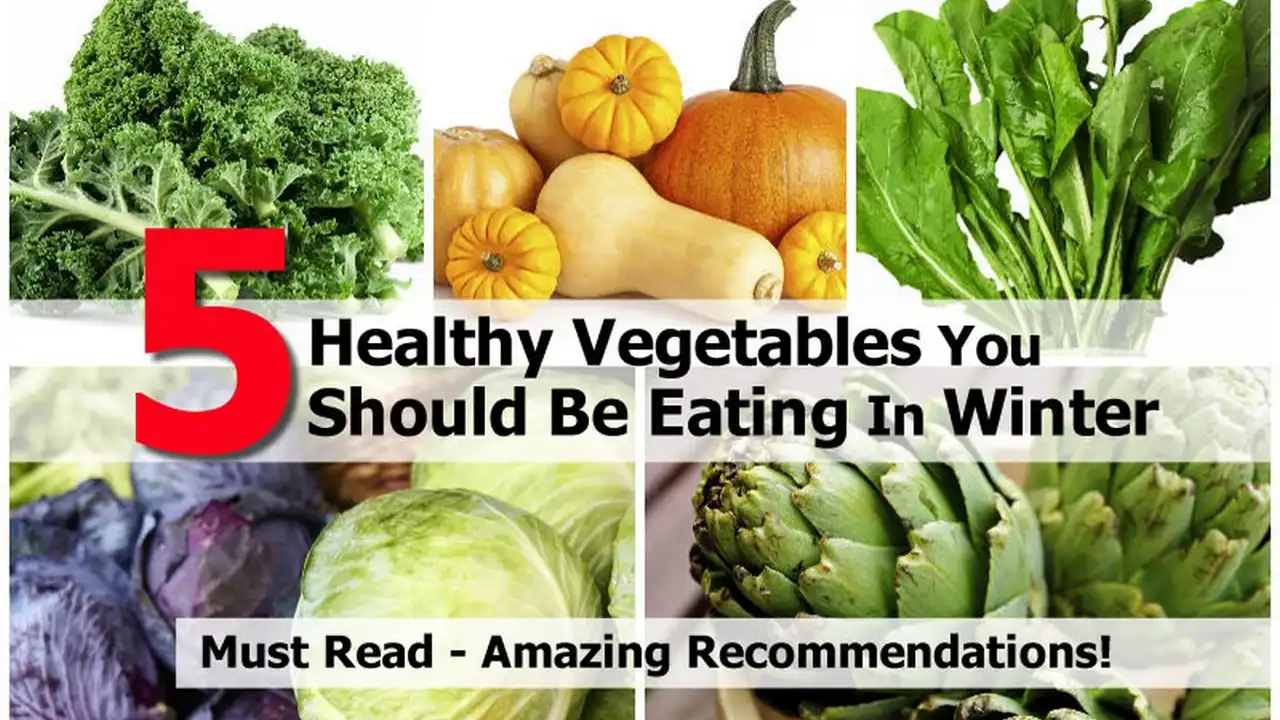
Maintain a healthy diet in winter. Nutritious foods to keep you energized and well during colder months.
\n\nHey there, winter warriors! As the days get shorter and the temperatures drop, it's super easy to fall into the trap of comfort eating. Think heavy, carb-laden meals, sugary treats, and maybe a little less fresh produce. While a warm bowl of chili or a delicious pie can certainly hit the spot, relying too much on these can leave you feeling sluggish, impact your immune system, and even affect your mood. But don't worry, eating healthy in winter doesn't have to be about deprivation. It's all about making smart choices that nourish your body, keep you energized, and help you fend off those pesky winter bugs. Let's dive into how you can eat well and thrive this winter!
\n\nWhy Your Winter Diet Matters for Energy and Immunity
\n\nYou might be wondering, why is winter eating so different? Well, our bodies naturally crave more energy-dense foods when it's cold to help maintain body temperature. Plus, with less sunlight, our vitamin D levels can dip, which impacts everything from bone health to immunity. A well-balanced winter diet is crucial for several reasons:
\n\n- \n
- Boosting Your Immune System: Winter is prime time for colds and flu. Eating nutrient-rich foods, especially those high in vitamins C and D, zinc, and antioxidants, can significantly strengthen your body's defenses. \n
- Maintaining Energy Levels: The lack of natural light can make us feel more tired. Proper nutrition provides the sustained energy you need to stay active and productive, even when you'd rather just hibernate. \n
- Improving Mood and Mental Well-being: Seasonal Affective Disorder (SAD) is a real thing. Certain nutrients, like omega-3 fatty acids and B vitamins, play a role in brain health and can help combat winter blues. \n
- Supporting Skin and Hair Health: Cold, dry air can wreak havoc on your skin and hair. A diet rich in healthy fats, vitamins, and minerals can help keep them hydrated and healthy from the inside out. \n
Essential Nutrients for Your Winter Wellness
\n\nLet's talk about the superstars of winter nutrition. These are the nutrients you want to make sure you're getting enough of:
\n\nVitamin D The Sunshine Vitamin for Winter Health
\n\nSince sunlight exposure is limited, getting enough Vitamin D from food is super important. It's vital for bone health, immune function, and even mood regulation. Think about incorporating:
\n\n- \n
- Fatty Fish: Salmon, mackerel, tuna, and sardines are excellent sources. Aim for a few servings a week. \n
- Fortified Foods: Many milk, plant-based milks, cereals, and orange juices are fortified with Vitamin D. Check the labels! \n
- Egg Yolks: A small amount, but every bit helps. \n
- Mushrooms: Some mushrooms, especially those exposed to UV light, can be a good source. \n
Vitamin C Your Immune System's Best Friend
\n\nThis powerhouse vitamin is famous for its immune-boosting properties. It's also an antioxidant, protecting your cells from damage. Load up on:
\n\n- \n
- Citrus Fruits: Oranges, grapefruits, lemons, and limes are classic choices. \n
- Berries: Strawberries, blueberries, raspberries – fresh or frozen, they're packed with C. \n
- Bell Peppers: Surprisingly, bell peppers (especially red ones) often have more Vitamin C than oranges! \n
- Broccoli and Brussels Sprouts: Great cruciferous veggies that are also high in fiber. \n
Zinc The Mineral for Immune Support and Healing
\n\nZinc plays a critical role in immune function, wound healing, and cell growth. Make sure you're getting enough from:
\n\n- \n
- Red Meat and Poultry: Beef, lamb, and chicken are good sources. \n
- Legumes: Lentils, chickpeas, and beans are excellent plant-based options. \n
- Nuts and Seeds: Pumpkin seeds, cashews, and almonds are great for snacking. \n
- Dairy Products: Milk and cheese contain zinc. \n
Omega-3 Fatty Acids for Brain and Heart Health
\n\nThese healthy fats are crucial for brain function, reducing inflammation, and supporting heart health. They can also help with mood regulation. Find them in:
\n\n- \n
- Fatty Fish: Again, salmon, mackerel, and sardines are top picks. \n
- Flaxseeds and Chia Seeds: Great plant-based sources. You can add them to smoothies, oatmeal, or yogurt. \n
- Walnuts: A tasty snack that's also good for your brain. \n
Fiber for Digestive Health and Satiety
\n\nFiber keeps your digestive system running smoothly, helps you feel full, and can stabilize blood sugar levels. Don't forget:
\n\n- \n
- Whole Grains: Oats, brown rice, quinoa, and whole-wheat bread. \n
- Fruits and Vegetables: All of them! Especially root vegetables like carrots, sweet potatoes, and parsnips, and leafy greens.
- Legumes: Beans, lentils, and chickpeas are fiber powerhouses.
Smart Food Choices for Your Winter Plate
\n\nNow that we know the key nutrients, let's talk about the actual foods you can enjoy. Winter is a fantastic time for hearty, warming meals that are also incredibly nutritious.
\n\nSoups and Stews The Ultimate Comfort Food
\n\nThese are perfect for winter! They're hydrating, easy to pack with veggies, lean protein, and whole grains. Think about making:
\n\n- \n
- Lentil Soup: Packed with fiber and plant-based protein. \n
- Chicken Noodle Soup: A classic for a reason, especially when you're feeling under the weather. \n
- Vegetable Beef Stew: Load it up with root vegetables like carrots, potatoes, and parsnips. \n
- Butternut Squash Soup: Creamy, naturally sweet, and full of vitamins. \n
Root Vegetables and Winter Squashes Nutrient-Dense and Versatile
\n\nThese veggies are in season and packed with vitamins, minerals, and fiber. They're also incredibly versatile for roasting, mashing, or adding to stews.
\n\n- \n
- Sweet Potatoes: Rich in Vitamin A (beta-carotene), which is great for vision and immune health. \n
- Carrots: Another excellent source of Vitamin A. \n
- Parsnips and Turnips: Earthy and delicious when roasted. \n
- Butternut Squash, Acorn Squash, Spaghetti Squash: Versatile and full of nutrients. \n
Leafy Greens Even in Winter
\n\nDon't forget your greens! Kale, spinach, and collard greens are still available and packed with vitamins K, A, and C, plus iron.
\n\n- \n
- Add spinach to your morning eggs or smoothies. \n
- Sauté kale with garlic as a side dish. \n
- Use collard greens in hearty stews. \n
Lean Proteins for Satiety and Muscle Health
\n\nProtein helps you feel full and supports muscle maintenance, which is important if you're active in winter sports.
\n\n- \n
- Chicken and Turkey Breast: Lean and versatile. \n
- Fish: Salmon, cod, tuna. \n
- Legumes: Beans, lentils, chickpeas – excellent plant-based protein. \n
- Eggs: A quick and easy protein source. \n
Healthy Fats for Warmth and Nutrient Absorption
\n\nDon't shy away from healthy fats. They provide energy, help absorb fat-soluble vitamins (A, D, E, K), and keep you feeling satisfied.
\n\n- \n
- Avocado: Great in salads or on toast. \n
- Nuts and Seeds: Almonds, walnuts, chia seeds, flaxseeds. \n
- Olive Oil: For cooking and dressings. \n
Hydration Beyond Water in Winter
\n\nIt's easy to forget to drink enough water when you're not sweating as much, but hydration is just as important in winter. Dry indoor air and physical activity can still lead to dehydration.
\n\n- \n
- Water: Still your best friend. Keep a water bottle handy. \n
- Herbal Teas: Warming and comforting, and they count towards your fluid intake. \n
- Broths: Vegetable or bone broths are hydrating and provide minerals. \n
- Soups: As mentioned, a great way to get fluids and nutrients. \n
Practical Tips for Healthy Winter Eating
\n\nMaking healthy eating a habit in winter is easier than you think. Here are some practical tips:
\n\n- \n
- Meal Prep: Dedicate some time on the weekend to chop veggies, cook grains, or make a big batch of soup. This makes healthy eating during busy weekdays a breeze. \n
- Embrace Frozen Produce: Frozen fruits and vegetables are just as nutritious as fresh ones, often more affordable, and super convenient. Stock up on frozen berries for smoothies and frozen veggies for stir-fries or soups. \n
- Spice It Up: Use warming spices like ginger, cinnamon, turmeric, and cayenne pepper. Many of these have anti-inflammatory and immune-boosting properties. \n
- Limit Processed Foods and Sugary Drinks: These offer little nutritional value and can contribute to energy crashes and weakened immunity. \n
- Listen to Your Body: Craving something warm and comforting? Opt for a healthy soup or a baked sweet potato instead of reaching for highly processed options. \n
Specific Product Recommendations for Your Winter Pantry
\n\nTo help you get started, here are a few specific product types and brands that can make healthy winter eating easier and more delicious. Remember, availability and pricing can vary, so always check your local stores!
\n\nHigh-Quality Olive Oil for Cooking and Dressings
\n\nA good extra virgin olive oil is a staple. It's great for sautéing vegetables, making salad dressings, or drizzling over soups. Look for cold-pressed options.
\n\n- \n
- Product Recommendation: California Olive Ranch Everyday Extra Virgin Olive Oil \n
- Usage Scenario: Daily cooking, roasting vegetables, making vinaigrettes. \n
- Comparison: Compared to cheaper, refined olive oils, this offers a richer flavor and more antioxidants due to its extra virgin status. It's a good balance of quality and affordability. \n
- Estimated Price: $10-$15 for a 16.9 fl oz bottle. \n
Organic Frozen Berries for Smoothies and Oatmeal
\n\nFrozen berries are a lifesaver in winter when fresh berries might be expensive or out of season. They're packed with Vitamin C and antioxidants.
\n\n- \n
- Product Recommendation: Cascadian Farm Organic Mixed Berries \n
- Usage Scenario: Blending into morning smoothies, stirring into oatmeal, or thawing for a quick dessert topping. \n
- Comparison: Organic options ensure no pesticides, and mixed berries give you a variety of nutrients. They're often flash-frozen at peak ripeness, locking in nutrients. \n
- Estimated Price: $4-$6 for a 10 oz bag. \n
Whole Grain Oats for Hearty Breakfasts
\n\nOatmeal is a fantastic warm breakfast option, providing sustained energy and fiber. Look for steel-cut or rolled oats for the most benefits.
\n\n- \n
- Product Recommendation: Bob's Red Mill Organic Old Fashioned Rolled Oats \n
- Usage Scenario: Making oatmeal, overnight oats, or adding to baked goods. \n
- Comparison: Rolled oats cook faster than steel-cut but still offer excellent nutritional value compared to instant oats which can be highly processed and contain added sugars. \n
- Estimated Price: $5-$8 for a 32 oz bag. \n
Canned Wild Salmon for Omega-3s
\n\nCanned salmon is a convenient and affordable way to get your omega-3 fatty acids, especially if fresh fish isn't always accessible.
\n\n- \n
- Product Recommendation: Wild Planet Wild Sockeye Salmon \n
- Usage Scenario: Making salmon salads, adding to pasta dishes, or eating straight from the can for a quick protein boost. \n
- Comparison: Wild-caught salmon generally has a better nutritional profile and is more sustainable than farmed salmon. Sockeye is known for its rich flavor and color. \n
- Estimated Price: $4-$6 per 6 oz can. \n
Nutritional Yeast for B Vitamins and Umami Flavor
\n\nFor those looking for a cheesy, umami flavor without dairy, or just an extra boost of B vitamins (especially B12 for vegans), nutritional yeast is a great addition.
\n\n- \n
- Product Recommendation: Bragg Nutritional Yeast Seasoning \n
- Usage Scenario: Sprinkling on popcorn, roasted vegetables, pasta, or using in vegan cheese sauces. \n
- Comparison: Bragg is a well-known brand, often fortified with B vitamins, making it a good choice for nutritional support. \n
- Estimated Price: $7-$10 for a 4.5 oz shaker. \n
High-Quality Bone Broth for Gut Health and Warmth
\n\nBone broth is gaining popularity for its potential gut-healing properties and is a comforting, nutrient-dense base for soups or just to sip on.
\n\n- \n
- Product Recommendation: Kettle & Fire Classic Beef Bone Broth \n
- Usage Scenario: Sipping warm, using as a base for soups and stews, or cooking grains. \n
- Comparison: Kettle & Fire uses grass-fed bones and slow-simmers for a long time, resulting in a richer, more nutrient-dense broth compared to standard store-bought broths or stocks. \n
- Estimated Price: $7-$9 per 16.9 oz carton. \n
Remember, these are just suggestions, and there are many other fantastic products out there. The key is to read labels, choose whole, unprocessed foods whenever possible, and enjoy the process of nourishing your body.
\n\nStaying Active and Mindful Eating in Winter
\n\nBeyond what you eat, how you eat also plays a big role. Mindful eating – paying attention to your hunger cues, savoring your food, and eating without distractions – can help you make better choices and enjoy your meals more. And don't forget about staying active! Even short walks outdoors (weather permitting) or indoor exercises can boost your mood, energy, and metabolism, complementing your healthy eating habits.
\n\nSo, this winter, let's make a conscious effort to fuel our bodies with delicious, nutritious foods. It's not just about avoiding illness; it's about feeling vibrant, energetic, and ready to embrace all the beauty and adventure the colder months have to offer. Happy eating!
" } ] }:max_bytes(150000):strip_icc()/277019-baked-pork-chops-with-cream-of-mushroom-soup-DDMFS-beauty-4x3-BG-7505-5762b731cf30447d9cbbbbbf387beafa.jpg)






